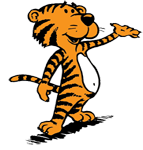4th Grade Newsletter
May 16, 2022
Language Arts
What are we learning?
- Understand the components of fiction (setting, characters, plot, theme, problem, solution)
- Create a fictional story using all elements of a story
- Explore test taking strategies such as slash the trash, reread the question/passage, look at context clues to discern the meaning of a word
Home/School Connection
- Identify key elements in a story, show, and/or movie. Investigate how a character can choose a variety of different solutions to a problem.
- Discuss how the setting (time, seasons, year, place) can influence fiction
- Highlight important or unfamiliar vocabulary and use strategies such as context clues and glossary search to better understand the text
Math
What are we learning?
- Determine elapsed time
- Analyze and interpret bar and line graphs
- Determine the probability of events based on possible outcomes
-
*************************************************
- compare the value of fractions and to place benchmark fractions on a number line
- graph the data
- Determining the Likelihood of Outcomes
- Using Fractions to Calculate Probabilities
Home/School Connection
- Discuss the best unit for measuring different things- when to measure with inches, pounds, or kilometers.
- Practice telling how much time has passed or what time it will be in ___ hours and ___ minutes.
- Discuss the likelihood of events using probability vocabulary: certain, likely, equally likely, unlikely, and impossible
-
******************************************
- Play games with probability
- Make predictions and see how you did
Science
What are we learning?
Science is:
- avoids bias
- is predictable
- a social activity
- demands evidence
- a blend of logic an and imagination
And finally:
- Realize scientific ideas are subject to change
- The natural world is understandable
Home/School Connection
- Explore new ideas and let the kids “play” with cooking, nature, and concepts as they investigate their world!
Social Studies
What are we learning?
Students will
- discover how technology and innovations continue to grow and change over time
- Focus on the ideas and actions of people and groups have consequences and can shape events
- Discuss how conflict has consequences on culture, society, or a group of people
- Investigate how people respond to and resolve conflicts in many different ways
- understand cause and effect can help people solve problems and make decisions.
- realize that knowledge of the past helps us understand the present and make decisions about the future.
Home/School Connection
- Share your own stories of acceptance and overcoming adversity
- Look for ways to support the community we live in
- Share in local cultural celebrations
- Find ways to give back that your student can really support

